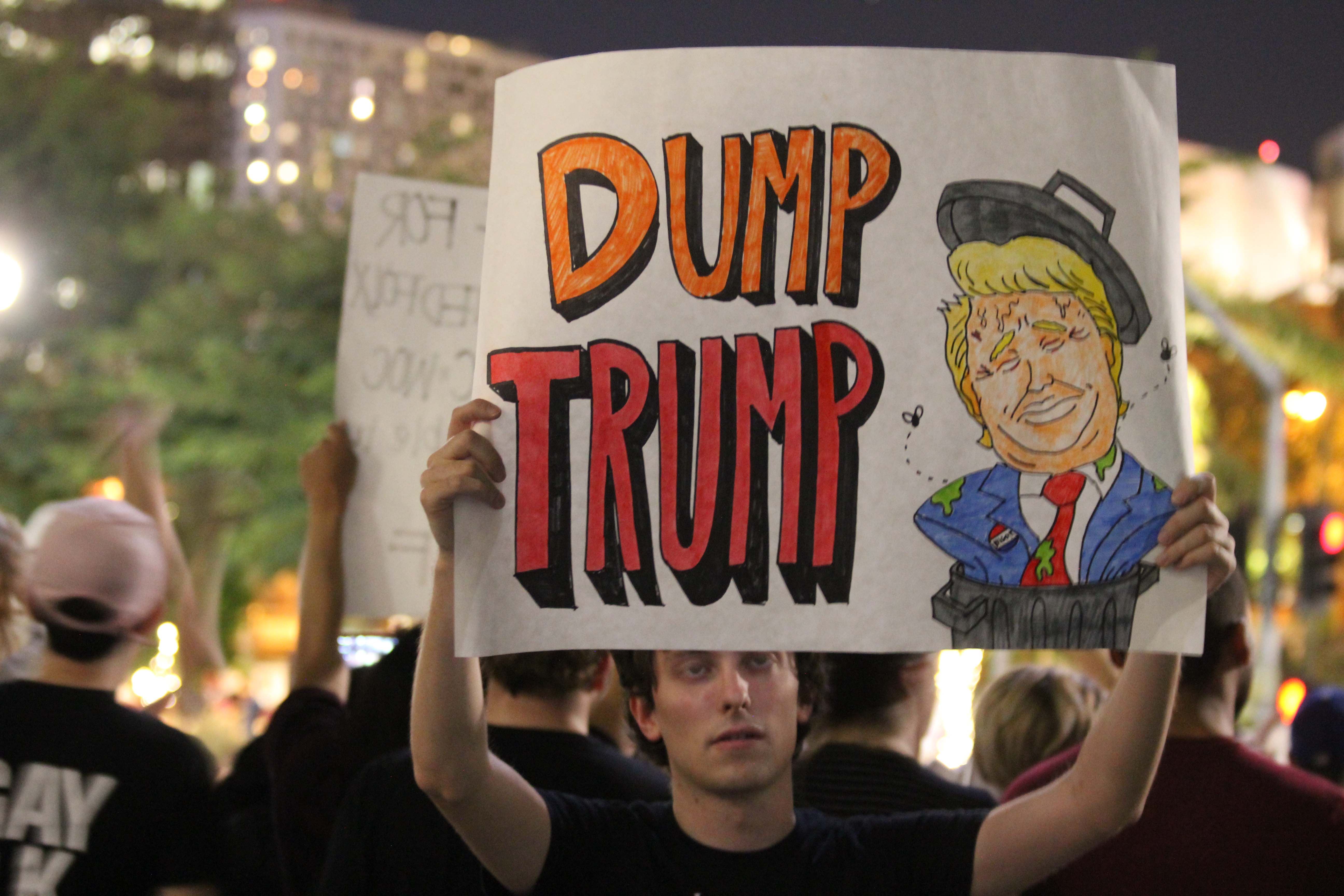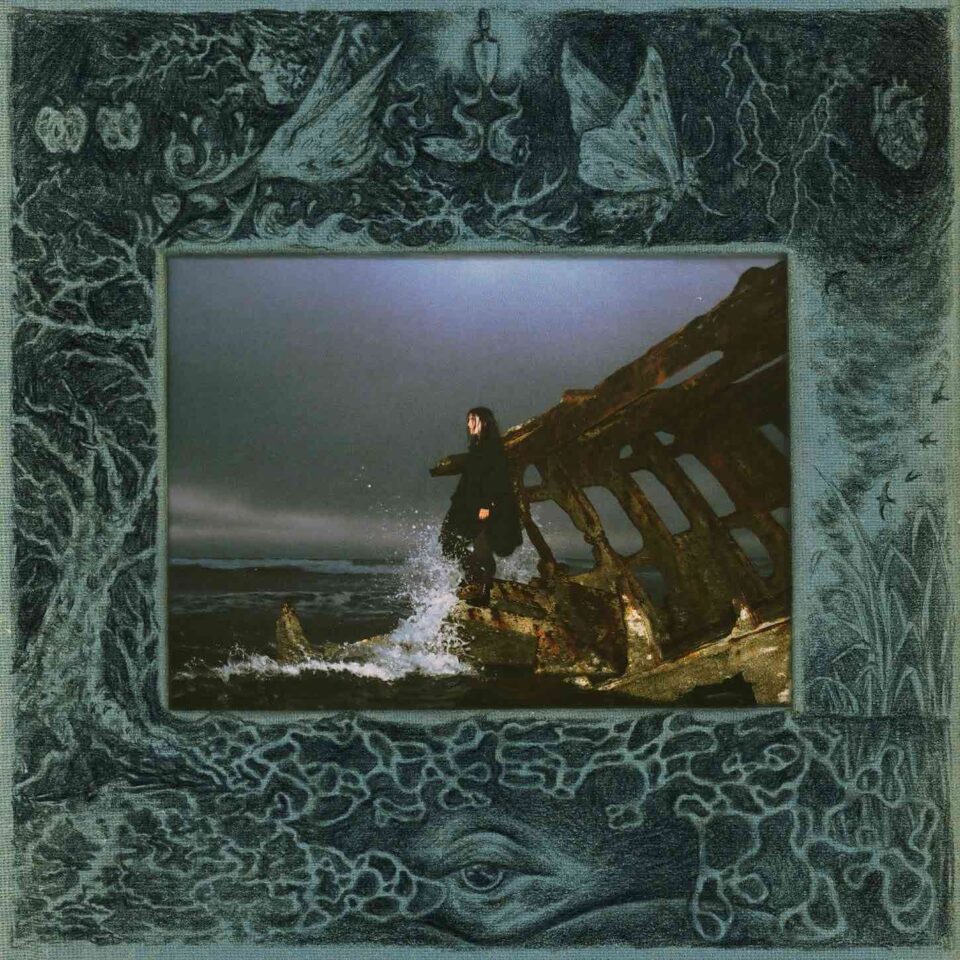Where were you when the election wasn’t funny any more?
I was at what was supposed to be a victory watch party featuring comedians Kate Berlant, John Early, and Jerrod Carmichael. Thank god this is over, they said. We’re running out of jokes about the color orange, they said. But by the time Michigan and Pennsylvania looked certain to swing, the cinema was silent. Symphony about to begin silent. Funeral silent. The hosts couldn’t host. The audience couldn’t laugh. We were frozen, hopelessly absorbing, barely processing every moment.
When a friend announced she was selling handmade chocolate for Father’s Day, I asked if she had any products for people who didn’t have a dad. Her boyfriend Jon sitting next to her had never met his father and she knew mine hadn’t been around since I was a child, so she immediately turned scarlet. Others in the room were stunned by the weight of the sentiment. Jon beamed at me with a wide, guilty grin before we burst into hysterics, to the confusion of everyone else. It’s kind of funny that we don’t have dads.
The night after the election I attended the anti-Trump protests in Downtown Los Angeles as a journalist. Tens of thousands, almost all under thirty-five, gathered for what felt like a memorial service for their country. I was drawn to a young gay man who seemed uniquely enthusiastic and in good spirits, leading others in chant. I asked what had inspired him to take to the streets, but a sudden outburst of tears prevented him from elaborating. He slowly shook his head, unable to get the words out. Those I spoke with that night were trying to defy an apocalypse, and they knew they had already lost.
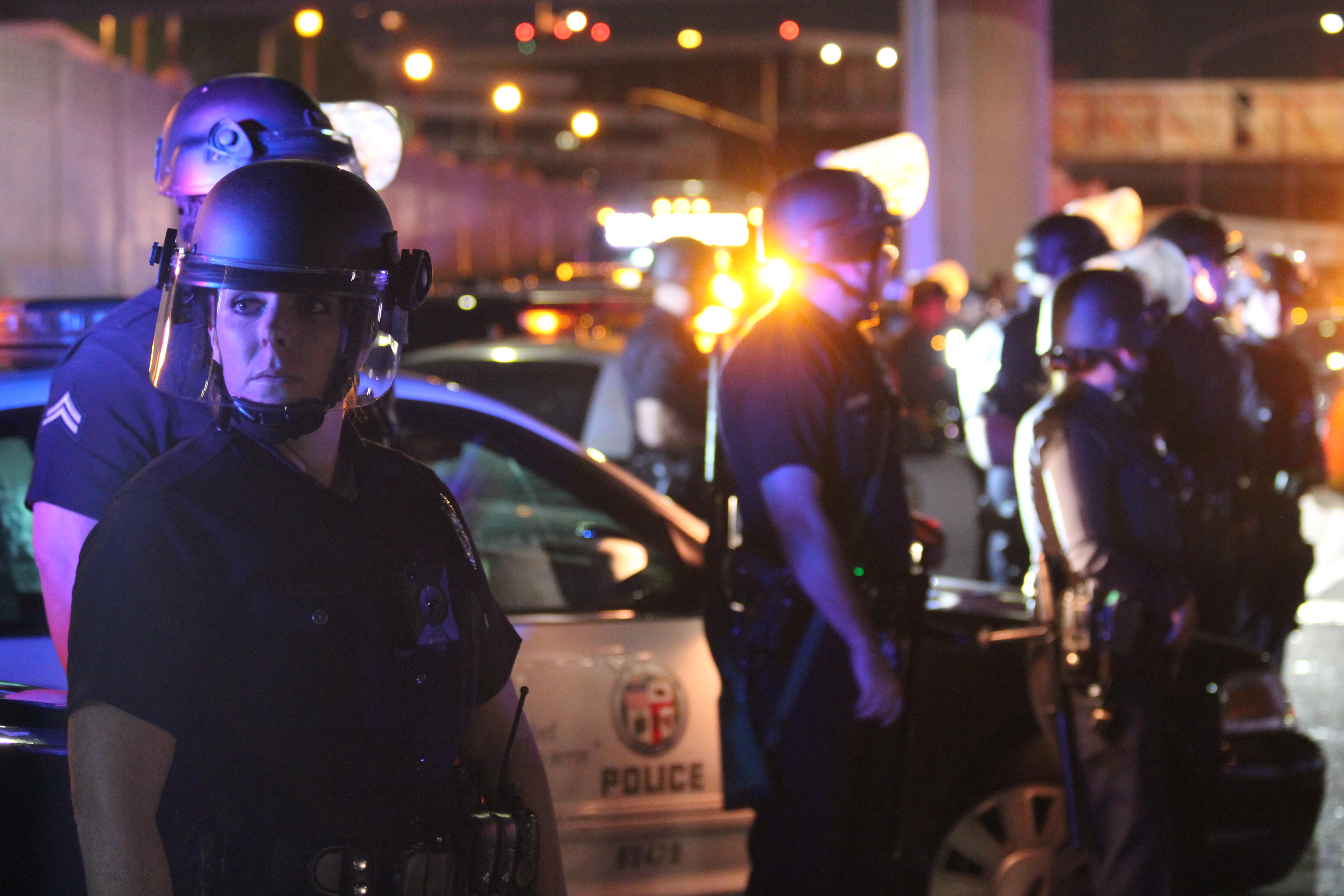
photo by Jason J. Cohn
A month ago I was in the audience at the UCB Theater when a special guest was announced: comedian Patton Oswalt dropped in and performed his first set since his wife died. He opened strongly. “If one more person praises me for my bravery I’m going to shoot myself.” We all laughed. It’s kind of funny people are considered heroes just for grieving.
For that week, half the nation forgot how to laugh. If you’re an undocumented immigrant facing deportation, hoping for progress on gun control, or have any concern about the future habitability of the planet, this election was a literal tragedy. After 9/11 we looked to Letterman, Conan, and Stewart for levity—or at least permission to be silly. But there was something final about that event; The West was attacked, but the worst was probably over. This felt different. We weren’t in mourning for what happened on election night. We were grieving for our future.
My grandmother narrowly escaped being captured by Nazis as a child. A friend and I were visiting a concentration camp in Poland, and after the display of baby shoes we had no more despair left to feel. Outside, tourists barged onto the last bus back to town, squeezing us off with no way to get back. When the bus left our sight, a torrent of rain opened up. Drenched and depressed, I turned to my friend. “This is the worst thing to ever happen to anyone at Auschwitz.” We cried laughing. Or laughed crying. It’s kind of funny my family were hunted like animals.
The first weekend after the election, another set of demonstrations were underway. Instead of at night, it began at a sensible 10 a.m.; the bright daylight cleansed some of the toxic bitterness felt at the first rally. The week gave protesters time to organize with more clarity. Causes from environmental to feminist to anti-racist were showing solidarity with one another. Strollers and wheelchairs were equally represented. Marchers genuinely thanked the police flanking the streets who encouraged the marchers with smiles and thumbs up. The vibe certainly wasn’t joyous, but it wasn’t poisonous. In the middle of a crowd declaring “Not my president!,” a sign shot up that made me giggle for so long the people around me suspected me of being a troll.
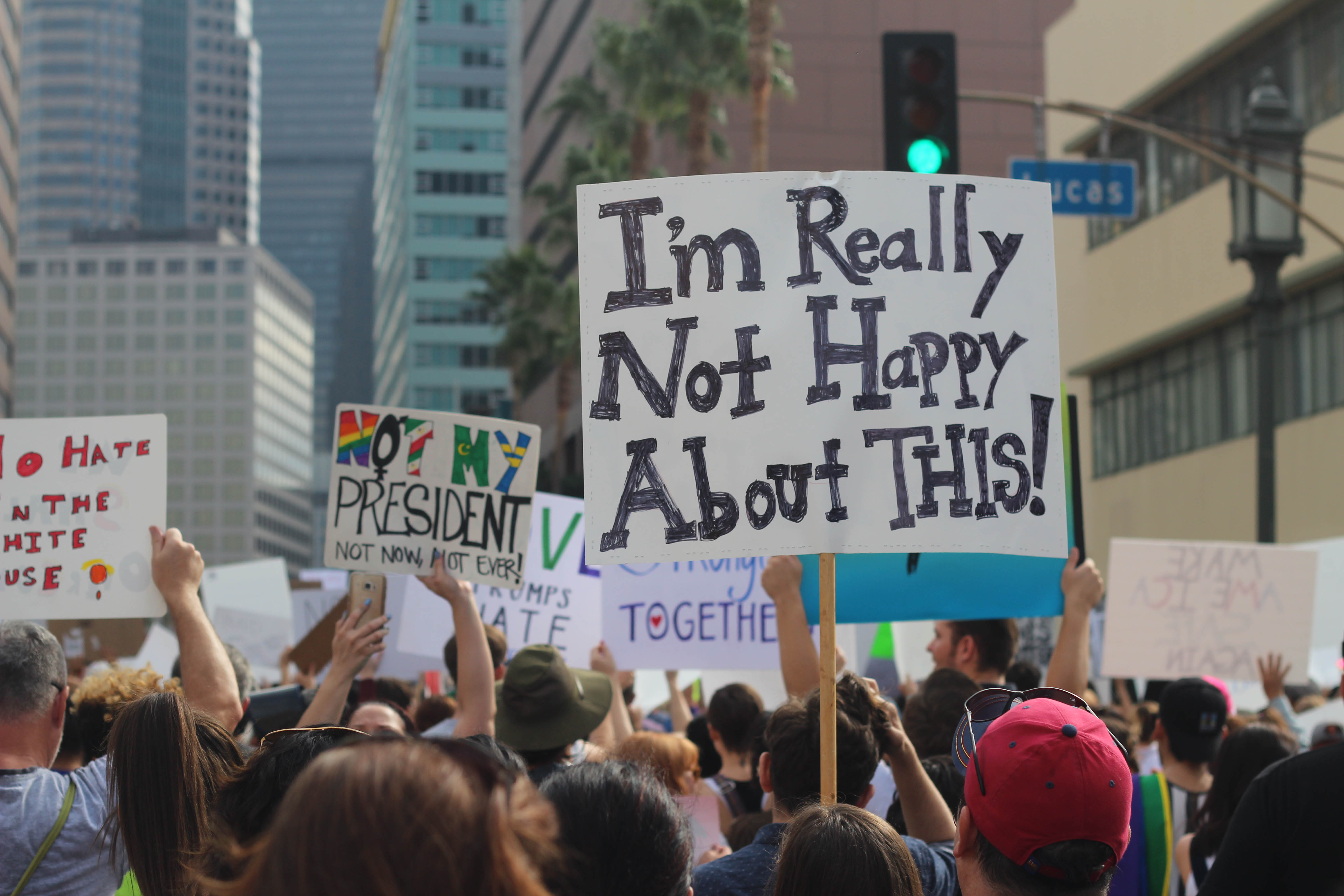 It was a perfectly placed show of polite rebellion in a sea of earnest frustration, and it made me laugh so hard my ribs hurt. Then I noticed I was surrounded by placards that were hilarious.
It was a perfectly placed show of polite rebellion in a sea of earnest frustration, and it made me laugh so hard my ribs hurt. Then I noticed I was surrounded by placards that were hilarious.
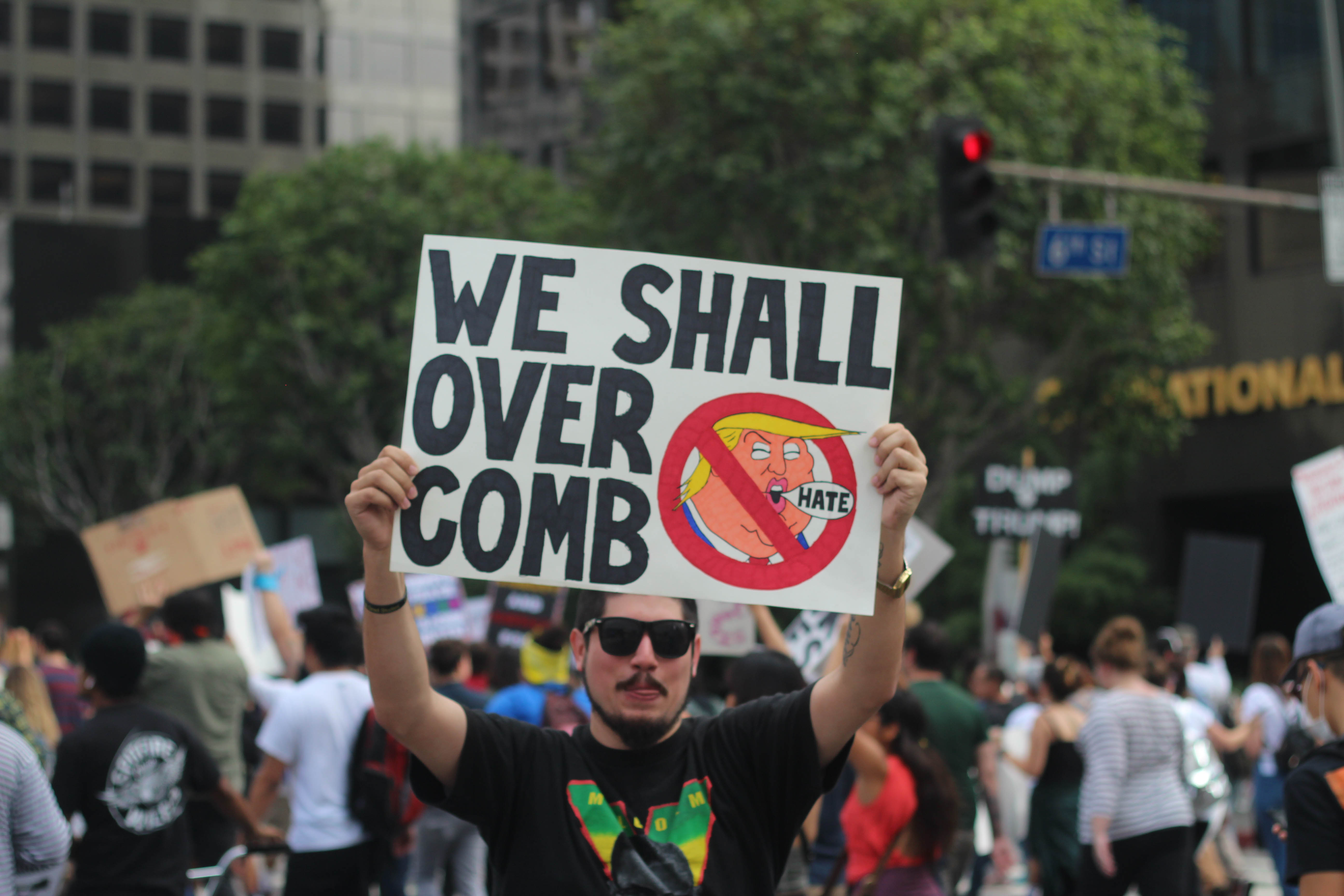 Defiant.
Defiant.
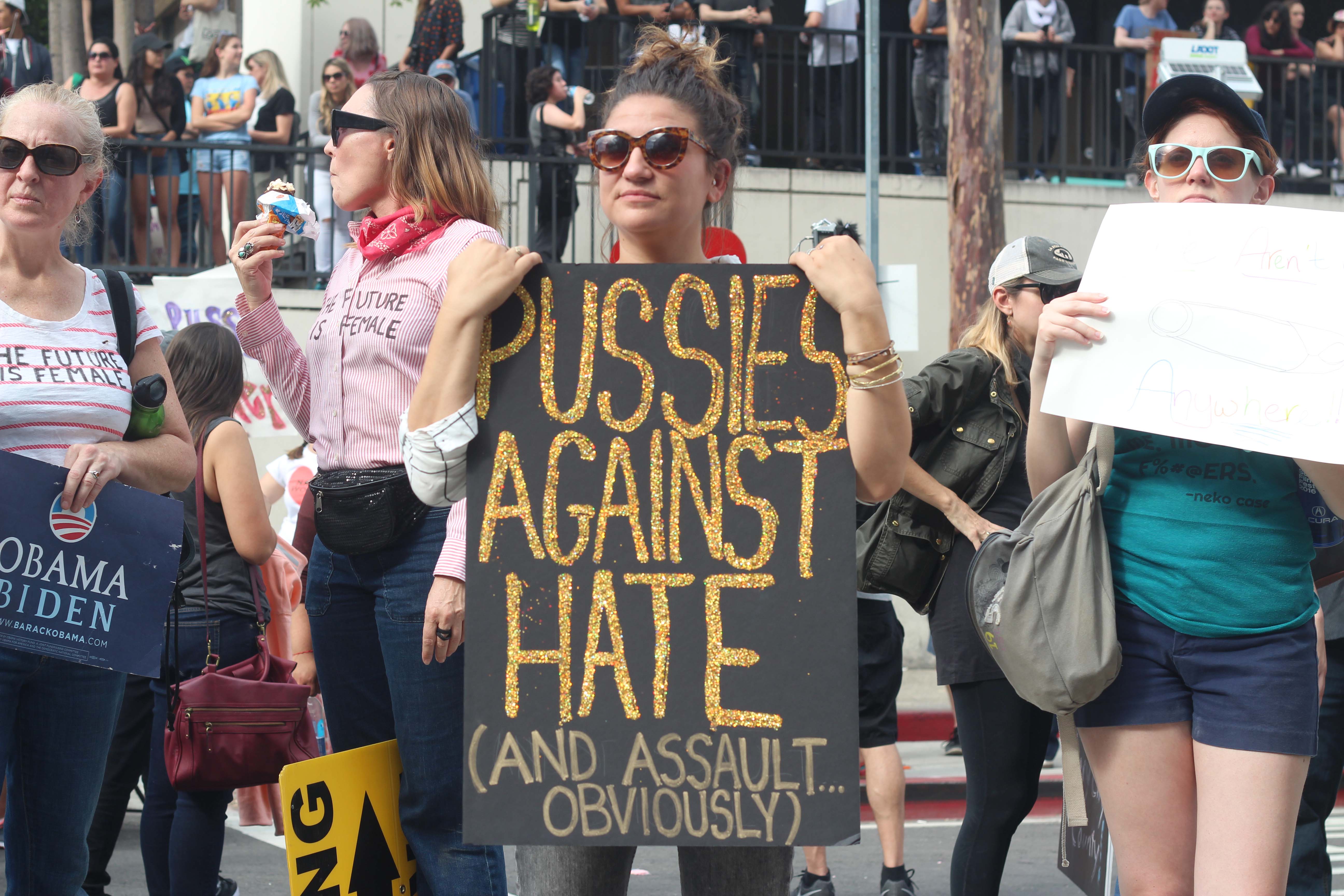 Nerdy.
Nerdy.
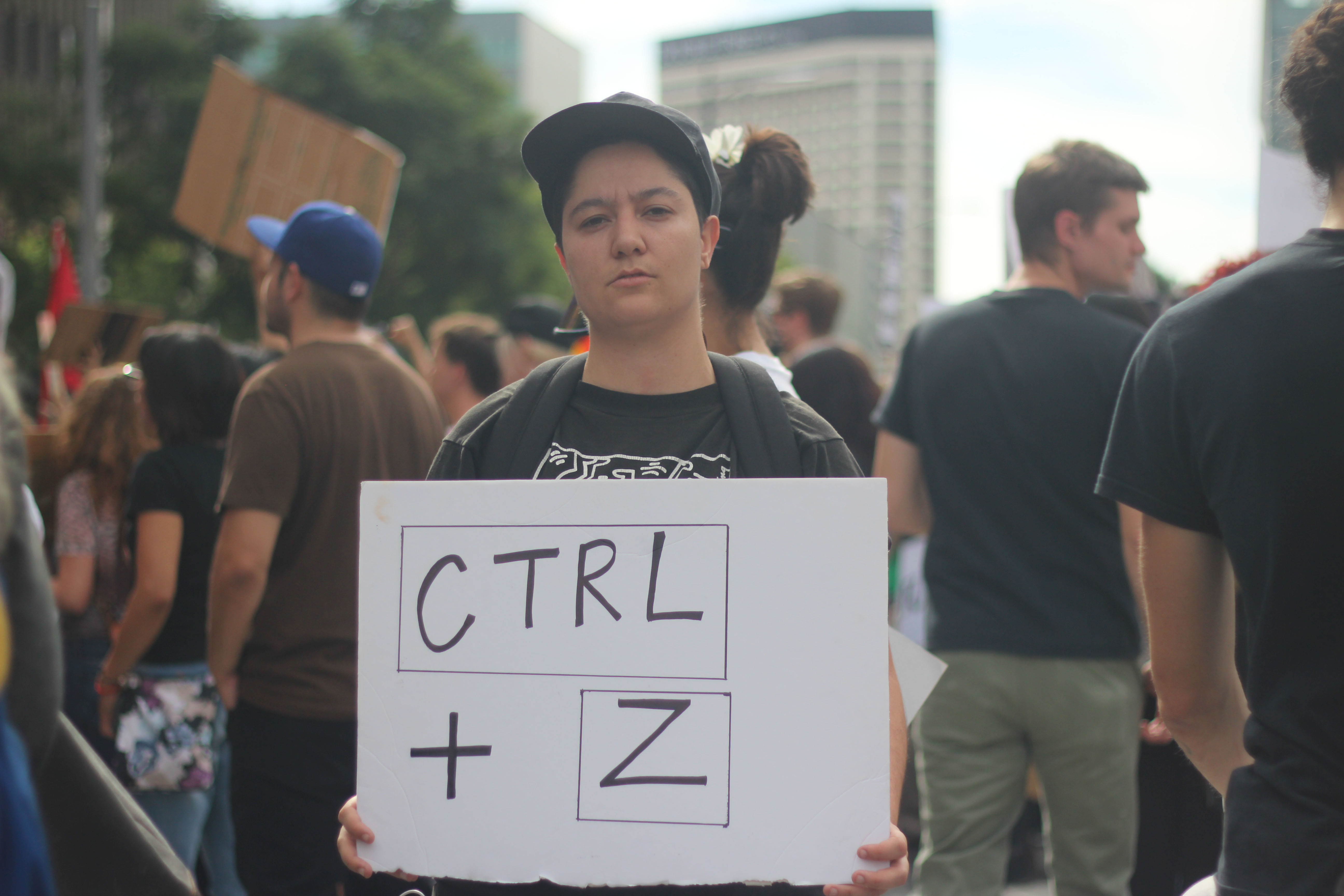 For the first time since election night, I felt loose. Giddy. Fleetingly but truly happy. And made so by passionate citizens who gave up their sleep in, produced these signs and walked through sweltering heat to deliver solid bits that Samantha Bee would be proud of.
For the first time since election night, I felt loose. Giddy. Fleetingly but truly happy. And made so by passionate citizens who gave up their sleep in, produced these signs and walked through sweltering heat to deliver solid bits that Samantha Bee would be proud of.
It is excruciatingly twee to pretend laughter is a powerful enough antibiotic to remedy the virus infecting our culture. It definitely isn’t going to help win Indigenous land disputes or prevent hate crimes against minorities. But at the very least, it makes me happy to be alive, something I wasn’t sure about a hundred hours prior.
And it is kind of funny that, hopefully for just a short while, we’re all totally fucked. FL

